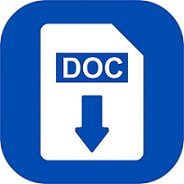Stabilization of Swamp Soil Using Steel Slag, Fly Ash, and Glass Bottle Powder To Determine Unconfined Compressive Strength Test (UCS) Value (Study Case on Kp. Tegal Wangi Street No.62, Rw. Arum, Sub-district Gerogol, Cilegon City, Banten)
Abstract
Keywords
Full Text:
PDFReferences
Hardiyatmo, H.C. (2010). Mekanika Tanah I (edisi ke V). Gadjah Mada University Press. Yogyakarta.
Iwardoyo, Jati. (2016). Studi Pemanfaatan Steel Slag Sebagai Bahan Bangunan Sabodam. Yogyakarta.
Yunita, Eka. (2017). Analisis Potensi dan Karakteristik Limbah Padat Fly Ash dan Bottom Ash Hasil Dari Pembakaran Batu Bara Pada Pembangkit Listrik Tenaga Uap (PLTU) PT. Semen Tonasa. UIN Alauddin Makassar.
Handayasari, Indah. (2016). Stabilisasi Tanah Pada Lahan Bekas Tempat Pembuangan Akhir (TPA) Sampah Dengan Pemanfaatan Serbuk Limbah Botol Kaca Sebagai Bahan Campuran. Universitas 17 Agustus 1945 Jakarta.
Kusuma, Rama Indera. (2021). “Soil Improvement Using Steel Slag Waste On The Value Of The Unconfined Compressive Strength Of The Soil (Case Study on Bojonegara Highway Serang Banten)”. Universitas Sultan Ageng Tirtayasa.
Indrayanto, Dwi. (2014). “Pengaruh Penambahan Limbah Baja (Slag) Terhadap Nilai Kuat Tekan Bebas Pada Tanah Lempung Di Daerah Babat Lamongan”. Universitas Negeri Surabaya.
Kusuma, Rama Indera. (2016). “Stabilisasi Tanah Dengan Menggunakan Fly Ash Dan Pengaruhnya Terhadap Nilai Kuat Tekan Bebas”. Universitas Sultan Ageng Tirtayasa.
Triadi, Dede. (2020). “Pengaruh Penambahan Limbah Batu Bara (Fly Ash) Terhadap Uji Kuat Tekan Bebas (UCS) Pada Tanah Timbunan Biasa”. Universitas Tanjungpura Pontianak.
Hutagalung, Sri Wahyuni. (2017). “Kajian Kuat Tekan Bebas Stabilisasi Tanah Lempung Dengan Stabiizing Agents Serbuk Kaca Dan Semen”. Universitas Sumatera Utara, Medan.
Das, M. Braja (2012). “Priciples of Geotechnical Engineering”. Cengage Lerning.
SNI 03-1964-2008. Test method on soil density.
SNI 03-1967-2008. Test method on soil liquid limit.
SNI 03-1966-2008. Test method on soil plastic limit.
SNI 03-1742-2008. Method of heavy density test for soil.
SNI 03-3638-2012. Test method for unconfined compressive strength cohesive soil.
Hatmoko, John Tri. (2007). UCS Tanah Lempung Ekspansif Yang Distabilisasi Dengan Abu Ampas Tebu Dan Kapur. Universitas Atma Jaya Yogyakarta.
DOI: http://dx.doi.org/10.36055/fondasi.v13i1.24838
Refbacks
- There are currently no refbacks.
FONDASI : JURNAL TEKNIK SIPIL HAS BEEN INDEXED BY
Fondasi: Jurnal Teknik Sipil by Jurusan Teknik Sipil UNTIRTA is licensed under a Creative Commons Attribution-ShareAlike 4.0 International License.






.jpg)


